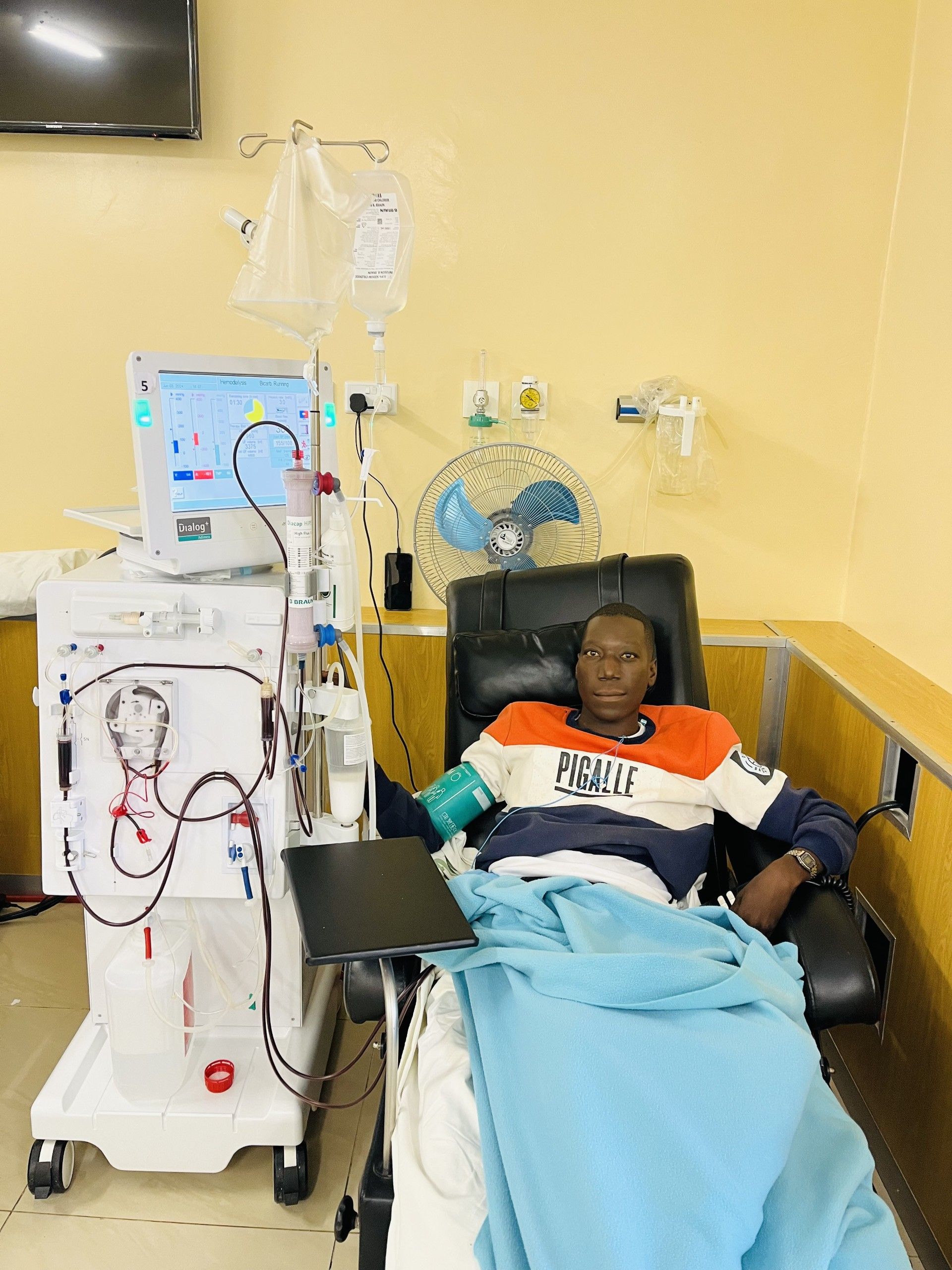Zimbabwe’s healthcare system is on the brink of collapse. Chronic underfunding, rampant corruption, and a massive exodus of healthcare professionals have left millions without adequate care. For many, the struggle is personal and life-threatening. Among those battling the system is 29-year-old Oswald Tanaka Mankanya, a kidney dialysis patient whose story sheds light on the daily hardships faced by countless Zimbabweans.
A Personal Battle Against a Failing System
Oswald’s health journey began in 2013, marked by unexplained facial swelling. Despite numerous tests and consultations, doctors were initially unable to diagnose his condition. It wasn’t until 2017 that the cause of his symptoms was finally identified: high blood pressure had led to kidney failure. This late diagnosis meant Oswald required immediate and regular dialysis.
“I started dialysis treatment in May of 2017 and I was going three times a week for 4-hour sessions up to a point around mid-2023 where I started going twice a week,” Oswald told BACKCOVERNEWS.COM.
For the university graduate, accessing dialysis treatment in Zimbabwe has been an arduous challenge, exacerbated by the country’s faltering healthcare infrastructure.

The Healthcare Landscape
Zimbabwe’s healthcare crisis is multifaceted. Public hospitals, which are supposed to provide care to the majority, are grossly under-resourced. They lack basic medical supplies, equipment, and even essential medications. Smaller hospitals and clinics are often unable to treat patients, forcing them to travel to larger facilities. Even then, the larger hospitals are overwhelmed, and patients like Oswald often face long waits and frequent treatment interruptions.
Private healthcare, while better equipped, is prohibitively expensive. The cost of dialysis in private centres ranges from $100 to $170 (USD) per session. For many Zimbabweans, these costs are insurmountable.
“The financial costs associated with dialysis have a huge impact on most kidney patients, including myself, as it strains other family projects and can even strain family relationships,” Oswald shared.
Systemic Failures and Shortages
Zimbabwe’s Health and Child Care Minister Douglas Mombeshora acknowledged in November last year that the country is facing a severe shortage of medicines and drugs, a situation that has reached crisis levels. The shortages are so acute that Zimbabwe does not have enough medication in store to last long-term. This dire situation is a consequence of economic mismanagement, crippling debt ($19.2 billion USD according to Bloomberg), and inflation running at around 100 percent.
For patients like Oswald, these shortages are a matter of life and death. “Accessing medication is also another challenge we face as there are a lot of drugs and tablets needed, from calcium tablets for bones to erythropoietin injections for blood to hypertension and diabetes tablets, just to mention a few,” he said.
The lack of personal protective equipment (PPE) and other essential medical supplies further exacerbates the crisis. Healthcare workers are underpaid, overworked, and increasingly leaving the country in search of better opportunities. More than 4,000 health workers have left the country since 2021. This medical brain drain has left a skeletal workforce struggling to cope with an overwhelming patient load. “We have lost a lot of friends mainly because of these interruptions to getting the needed and sufficient dialysis,” Oswald noted somberly.
The Human Toll
Oswald’s story is a poignant reminder of the human toll of Zimbabwe’s healthcare crisis. His condition has forced him to travel extensively to receive treatment, often to cities far from his home in Gweru. The travel is physically and financially exhausting, compounding the stress of his condition. “A recent interruption happened in March of 2024, and I was travelling to a town called Masvingo, which is around 183 km from where I am currently staying in Gweru. It was really a difficult situation for me, as I was hiking to and from,” he recounted.
Despite these hardships, Oswald remains resilient. His family provides much-needed support, but the strain is evident. “Currently, support I am only getting is mainly from my family and some close friends, and it’s mainly in the form of psychological support, them encouraging me to hang on and fight. Also, financial support comes from my family,” he said.
The Bigger Picture
Zimbabwe’s healthcare crisis is not limited to kidney patients. The systemic issues affect all sectors of healthcare, from maternity wards to emergency services. Many hospitals lack essential equipment for procedures such as radiography and cancer treatment. Collapsing infrastructure often leaves facilities without electricity and water, further compromising patient care.
Ahead of elections in August last year, President Emmerson Mnangagwa opened a new “state-of-the-art” clinic in Bulawayo. However, critics argue that these flashy ribbon-cutting ceremonies are not followed by the necessary systemic reforms to truly improve the healthcare sector. The World Health Organization (WHO) advises that the development of a One Health Plan is crucial. This plan would integrate multiple sectors to sustainably balance and optimise the health of people, animals, and ecosystems.
Hope and Desperation
For Oswald, and many others like him, the future remains uncertain. His hopes for systemic change are intertwined with his personal battle for survival. “I would like to see a lot of changes in the healthcare system, firstly it will be accessibility of treatment for everyone no matter where they come from. Availability of medical supplies in the hospitals and clinics. Availability of professionals such as psychologists, dietitians, and other professionals for counselling sessions,” he said.
Oswald’s message to policymakers is clear: they need to witness firsthand the conditions in public health institutions to understand the severity of the crisis. “For policymakers, I wish they can find ways to visit public health institutions and see for themselves the situation many patients are facing. Maybe it might help them have a clearer picture of how bad things are,” he emphasised.
In Summary
Zimbabwe’s healthcare system is at a critical juncture. Without immediate and substantial reforms, the situation will continue to deteriorate, leaving more citizens vulnerable and without essential care. Oswald’s story is a testament to the resilience of those who endure the daily struggles of a failing system. His hopes for change reflect a broader yearning for a healthcare system that works for all Zimbabweans. As the nation grapples with its healthcare crisis, the voices of patients like Oswald must be at the forefront of the conversation, urging policymakers to take decisive action.

